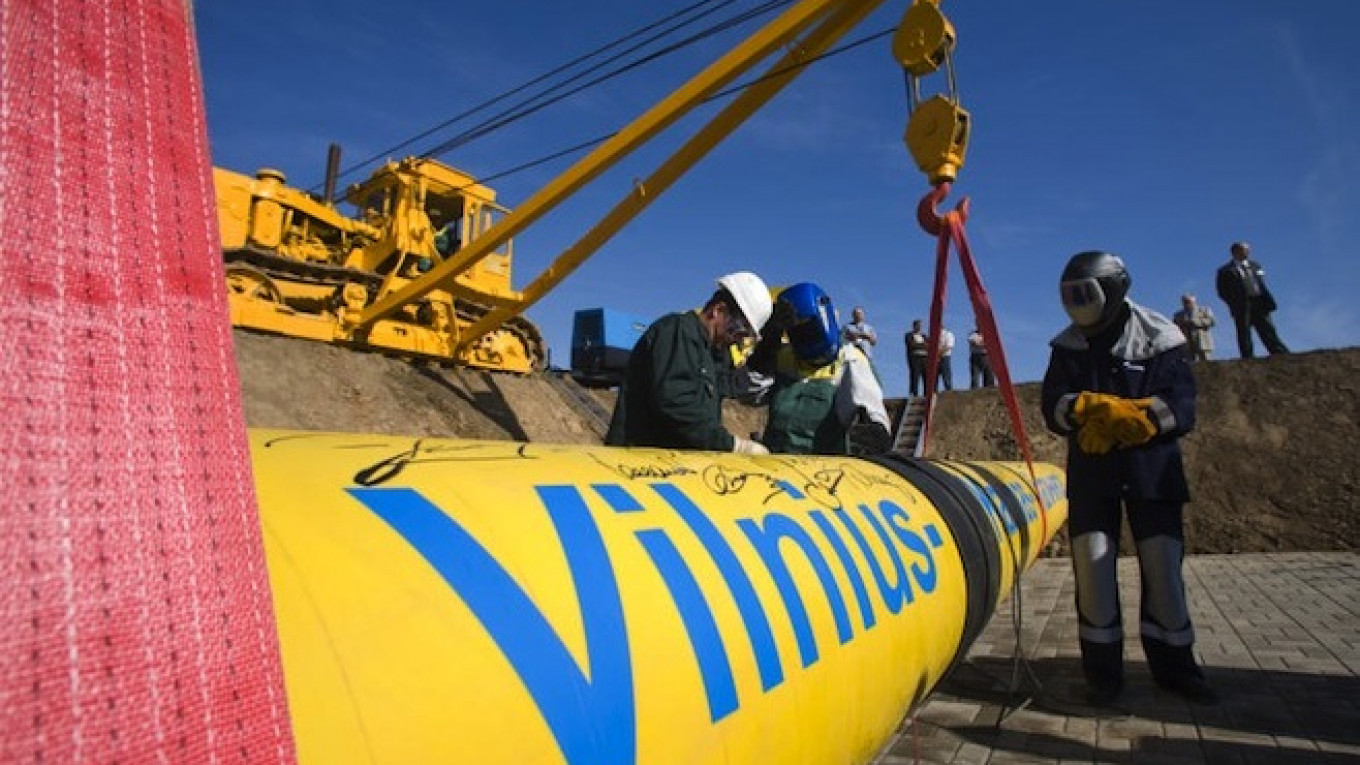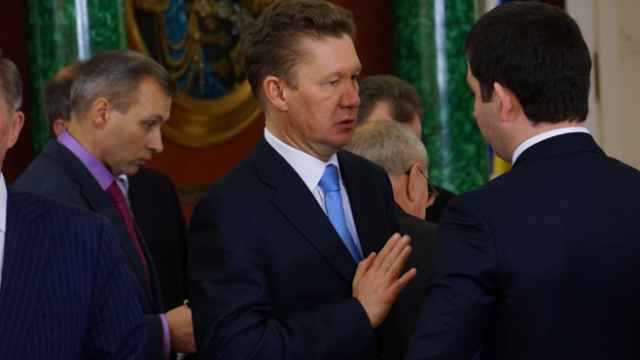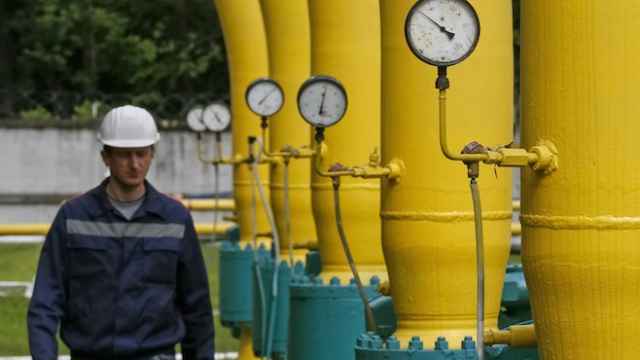BERLIN — Lithuania has at least until the end of 2016 to decide on whether to prolong a long-term gas imports deal with Russia, the boss of its top utility said.
Russia accounts for 80 percent of Lithuania's gas imports and supplies much of the 70 percent of electricity imports into the Baltic states' biggest economy.
Dalius Misiunas, chief executive of Lithuanian power producer Lietuvos Energija, said the conditions of the existing gas supply contract with Russia's Gazprom, due to expire at the end of the year, gave Lithuania enough gas until the end of 2016 or possibly later.
"We have this year and we have next year so we are not pressed," he told Reuters at European utilities industry trade group Eurelectric's conference in Berlin. "This gives us a lot of comfort."
Lithuania's dependence on power imports increased after it shut the Ignalina nuclear power plant at the end of 2009, while domestic generation from natural gas became too expensive.
It has been working hard to reduce its dependence on Russia, mainly by building a liquefied natural gas (LNG) terminal that now supplies the remaining 20 percent of its needs but which has a capacity to meet all of them.
Lithuania also started supplying natural gas to Estonia in January, with its share of total gas imports in Estonia rising to 27 percent in April.
This trend will intensify, Misiunas said.
"It's a big terminal. We are only using part of it [the LNG terminal] at the moment as I said mainly to diversify … but if the economical conditions are good, if the price is good for LNG … we can increase that amount."
Lietuvos Energija will invest 500-800 million euros ($557-890 million) by 2020 to expand its generation capacity or make acquisitions, Misiunas said.
The company last month said it would cooperate with Finland's Fortum to build a 53 megawatt (MW) electric capacity plant in Lithuania's second-biggest city, Kaunas.
It also plans to build a combined heat and power (CHP) station in the capital Vilnius, with 90 MW of electrical and about 220 MW of thermal capacity, but Misiunas said it had decided to do it without a partner.
"We still consider attracting or including a partner, just at a later stage … when the plant is built," Misiunas said, adding that pension funds could take a stake of up to 49 percent.
A Message from The Moscow Times:
Dear readers,
We are facing unprecedented challenges. Russia's Prosecutor General's Office has designated The Moscow Times as an "undesirable" organization, criminalizing our work and putting our staff at risk of prosecution. This follows our earlier unjust labeling as a "foreign agent."
These actions are direct attempts to silence independent journalism in Russia. The authorities claim our work "discredits the decisions of the Russian leadership." We see things differently: we strive to provide accurate, unbiased reporting on Russia.
We, the journalists of The Moscow Times, refuse to be silenced. But to continue our work, we need your help.
Your support, no matter how small, makes a world of difference. If you can, please support us monthly starting from just $2. It's quick to set up, and every contribution makes a significant impact.
By supporting The Moscow Times, you're defending open, independent journalism in the face of repression. Thank you for standing with us.
Remind me later.






